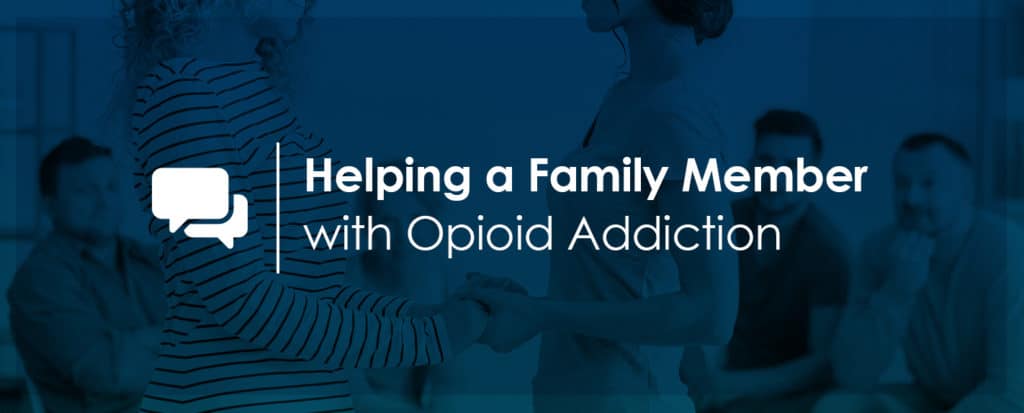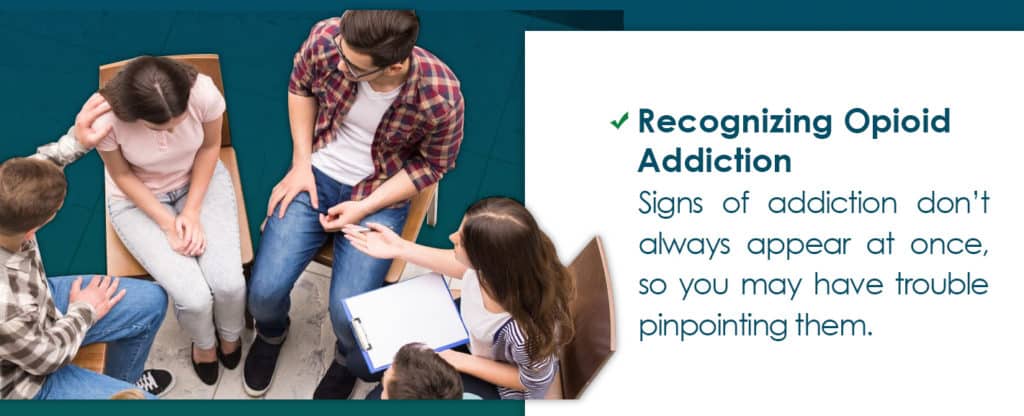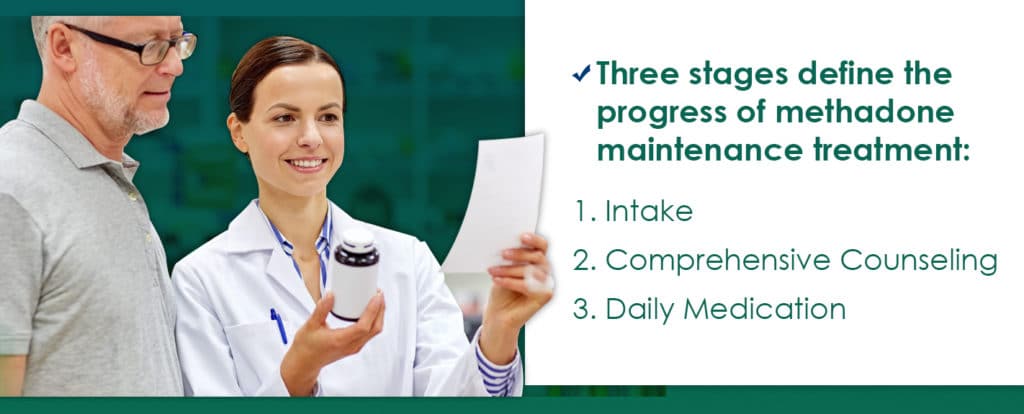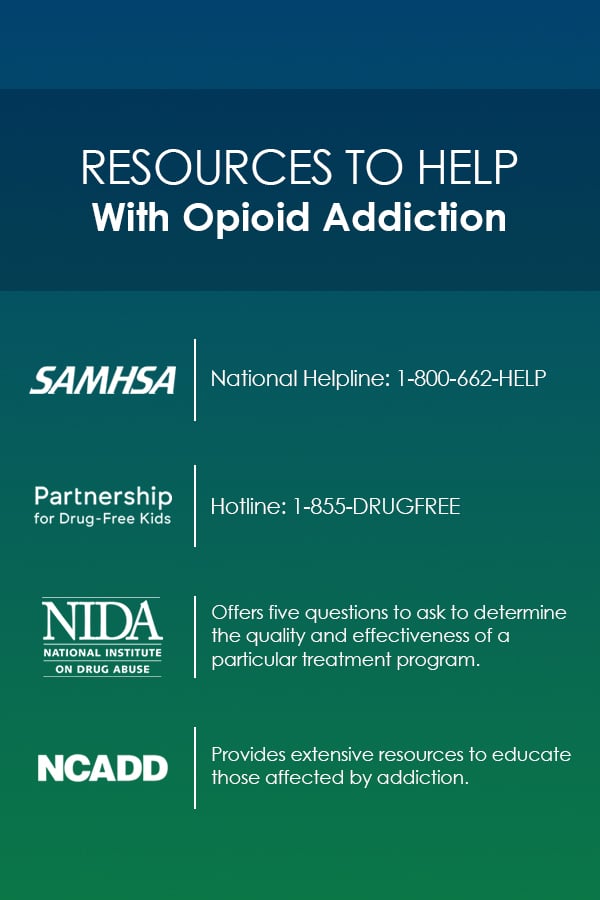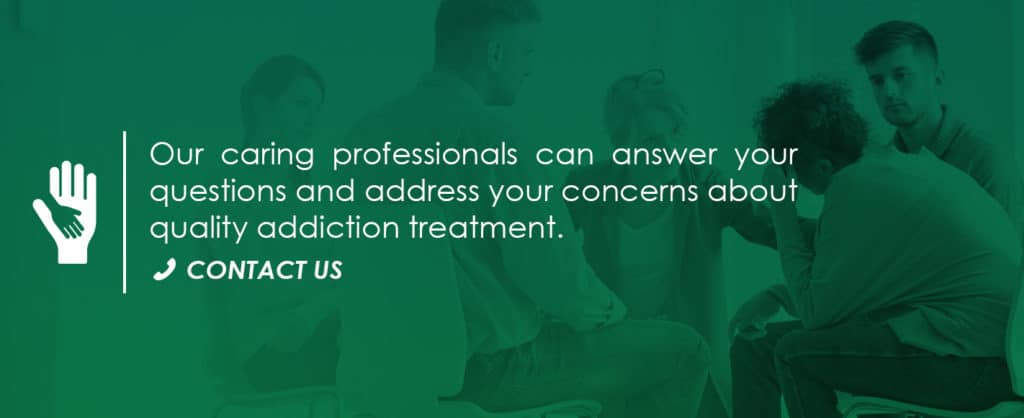Opioid addiction affects millions of people in the United States, with rates continuing to rise. Many hold the belief that a person they know and love would never abuse drugs, but opioids are uniquely dangerous because they can be acquired legally and for legitimate medical reasons. Most people struggling with an opioid addiction start with a doctor’s prescription and don’t realize they are abusing the drug until a strong dependency has formed.
The National Institute on Drug Abuse (NIDA) estimates that between 21-29% of those who receive opioid prescriptions end up misusing them, and up to 12% develop an addiction. A shocking 80% of people who turn to heroin started with prescription opioids first — so arresting opioid abuse as early as possible is crucial.
Opioid addiction is one of the most serious addictions a family member or loved one can face, with effects that reach beyond chemical dependence. As addiction progresses, you will see broad and deep changes in your loved one that cause worry and heartache as you navigate your relationship. You want the best for the important people in your life, and that means doing everything you can to get them opioid addiction help.
The goal of getting help for opioid addiction is to establish a long-term treatment plan and develop the mindset and skills to maintain recovery.
Recognizing Opioid Addiction
As a friend or family member, you are more likely to notice and acknowledge signs of addiction than your loved one. In the early stages, you may not recognize particular behaviors as signs of a dangerous dependence. Signs of addiction don’t always appear at once, so you may have trouble pinpointing them. Look out for:
- Social withdrawal or sudden shifts in friend groups
- Loss of interest in hobbies and activities
- A decline in personal hygiene
- Nervous, irritable or quickly shifting moods
- A breakdown in sleep schedule
- Tardiness or excessive absence at work
Addiction often looks like a strange shift in personality. Happy-go-lucky individuals become moody and withdrawn. Active people lose all interest in exercise. Social butterflies stop leaving the house. In other words, the person seems to stop being themselves. If you notice a personality change in your loved one, accompanied by any of the above signs, they may be struggling with opioid addiction. What should you do next?
Acknowledging Opioid Addiction
The first step to addiction recovery is to bring the drug abuse to light. As a friend or family member, the most challenging task is getting your loved one with opioid addiction to examine their consumption and reach the conclusion that abuse has become full-fledged addiction. Denial is a critical factor in the development of addiction, so getting through to your loved one requires a delicate approach. Try these tips to defuse the situation and open an honest dialogue:
- Use “I” statements: Never use accusatory language when talking to someone with opioid addiction. When someone feels attacked, they will not open up to you, and your message will get lost. The simplest way to avoid the pitfall of accidental accusation is to speak in “I” statements whenever possible. “I” statements are usually formatted like this: “When you skipped my birthday party, I felt worried and confused.” This format allows you to acknowledge problematic behavior spurred by the addiction, but it circles back to the action’s effect on you rather than demanding an explanation or otherwise berating your loved one. “I” statements are the most effective way to maintain a calm conversation about addiction.
- Focus on impact: Your “I” statements should always speak to the impact of the addiction itself, rather than the person struggling. Separating the person from their addiction helps provide perspective and reminds the individual that their destructive behaviors are not a core part of their identity. Such acknowledgment forms a critical step in encouraging acknowledgment.
- Focus on health: Do everything you can to ensure your loved one knows you’re not angry at them, you’re worried about their health and well-being. It’s easy to shut down in the face of anger, but it’s much more difficult to ignore genuine concern. Mention any addiction-related health issues you have noticed and how they have affected the person’s quality of life. Staying health-focused helps avoid the feelings of shame that often prevent individuals with addiction from engaging openly.
A loved one with opioid addiction is much more likely to respond positively to a combination of these three approaches than to any single one by itself. As a friend or family member, this delicate balancing act may be difficult, and not every individual will respond to a one-on-one conversation. Addiction tells people there’s nothing wrong, and convincing them may take more coordinated action.
In such cases, you may want to consult a trained interventionist. These professionals can provide specific techniques you can use to make the conversation go as smoothly as possible, and often guide group interventions. Having an impartial expert on the scene helps your loved one feel less attacked, and it gives you an extra measure of confidence in your words and actions.
The First Step to Opioid Addiction Help and Recovery
When someone chooses to seek opioid addiction help, they’re making an emotionally-charged decision. They may feel overwhelmed and afraid, and your support can be critical. Many friends and family members aren’t sure how to help with opioid addiction. Researching treatment methods with your loved one is a great place to start. They will have to choose from two forms of treatment:
- Abstinence-Based: In an abstinence-based program, the addicted individual receives an initial evaluation and may go through a detox procedure depending on the severity of their dependence. Afterward, the patient navigates a program comprised mainly of counseling, with the focus on complete abstinence from substances of any kind. Patients do not receive any assistive medication in such programs.
- Medication-Assisted: Medication-assisted treatment (MAT) is exactly what it sounds like. In these programs, patients receive one of three medications designed to reduce cravings for opioids while participating in counseling.
Both forms of treatment have the option of an inpatient or outpatient experience, depending on the needs of the individual.
In recent years, MAT has emerged as the most effective method of treating opioid addiction. MAT reduces improper use of opioids and increases the chances of a patient continuing their treatment plan. When MAT became available in Baltimore, Maryland, the number of deaths from heroin overdose plummeted by 37%. MAT using methadone is currently the “gold standard” of opioid addiction treatment.
Helping a Loved One With Opioid Addiction Using Medication-Assisted Treatment (MAT)
Medication-assisted treatment is the best option for anyone struggling to beat opioid addiction. Methadone emerged as an opioid addiction treatment in 1937, as two German scientists worked to create a painkiller less addictive than morphine. After World War II, methadone found wide use as an analgesic, but its efficacy as an opioid addiction treatment aid quickly became apparent.
Methadone works because it shields patients from the worst of withdrawal symptoms, including:
- Aching muscles
- Anxiety and restlessness
- Nausea, vomiting and diarrhea
These symptoms are unpleasant, to say the least, and have the potential to derail a recovery before it even begins. Even someone with full intent to commit to recovery may find withdrawal symptoms too much to handle. That’s where methadone comes in.
How Does Methadone Work?
Methadone is a full opioid agonist. That means it acts on the same mu-opioid receptors as drugs like heroin or oxycodone, but without delivering the same high. Instead, methadone blocks the action of other opioids. If someone takes another opioid while receiving methadone treatment, they will not receive any of the euphoric effects that led them to abuse drugs in the first place. By blocking pleasure from other opioids, methadone greatly reduces drug cravings.
As an analgesic, methadone also alters the physical response to pain. This makes withdrawal manageable for the patient, allowing them to focus on their treatment rather than surviving the symptoms.
Part of methadone’s efficacy comes from its long-lasting effects. Its action usually spans between 24-36 hours, as opposed to the two-hour window of heroin. The long duration of methadone eliminates the roller coaster highs and lows of other opioids, increasing emotional stability in patients. Patients must take their methadone every day for a period determined by their physician. This process is called “methadone maintenance.”
What Is a MAT Program Like?
A loved one or friend with opioid addiction is probably nervous and wondering what to expect from a methadone treatment program. Developing a general idea of the steps involved will instill the confidence necessary to enter treatment with their best foot forward. Three stages define the progress of methadone maintenance treatment:
- Intake: Before any treatment takes place, new patients complete a comprehensive intake session with medical and clinical components. On the medical side, a physician administers a drug screening and a standard physical. The results help determine the course of the patient’s methadone maintenance. The clinical intake asks about your loved one’s habits and history of opioid abuse.
- Comprehensive Counseling: Quality treatment centers provide individualized counseling roadmaps for each patient. Every addiction is different, and tailoring the program to meet your loved one’s needs improves outcomes and adherence to the treatment plan. Counseling helps the patient understand their addiction and build healthy coping mechanisms to support recovery.
- Daily Medication: Patients receive methadone once each day, at a dosage determined by their physician or nurse practitioner.
MAT programs should support the whole person on medical and psychological levels for the most successful outcomes, so be sure to choose a program that prioritizes respectful individual care. Health Care Resource Centers provides premier quality care in multiple locations across New England and has affiliate locations all over the United States.
Supporting Loved Ones During Recovery
While a friend or family member is getting help for opioid addiction, your support is more crucial than ever. You may not know exactly how to help with opioid addiction recovery, but these three tips are a wonderful place to start:
- Discuss Their Needs: Recovery requires changing habits, social groups and lifestyle. It’s a lot to manage, and there may be certain behaviors you should avoid to make these transitions smoother. Be upfront and ask your loved one how you can help them and what changes you can make to support their continued recovery. You may discover they need to stop frequenting particular hangouts or have to limit contact with a certain friend. You won’t know until you ask directly.
- Keep in Contact: Isolation is often a key contributor to addiction in the first place, so do your best to be a reliable source of support for the person in recovery. You don’t need to commit to answering phone calls at all hours of the night or maintain a constant stream of texts. Just let them know you’re open to communication and can help them talk things out if they need it. Be honest about your availability, and stick to it.
- Encourage Healthy Choices: A network of positive influences greatly increases the chances of staying sober. Good choices on every level, from physical to emotional, all work together for a healthy recovery. Support your loved one’s positive choices without being overbearing. Try inviting them on your bi-weekly run, or sharing a healthy recipe you just tried. Showing you care about their well-being encourages your loved one to continue on their positive path.
Positivity and open communication are the best ways for you to help a friend or family member in recovery, but you don’t need to provide all the support on your own. Physicians at Health Care Resource Centers are also trained to provide counseling for your loved one with opioid addiction.
Dually trained doctors are a win for patients in recovery. Consolidating medical expertise with clinical ability in one professional saves time and increases consistency during treatment.
Resources to Help With Opioid Addiction
Ready to explore getting help for opioid addiction in a friend or family member? Educate yourself with these resources:
- SAMHSA National Helpline: 1-800-662-HELP
The Substance Abuse and Mental Health Services Administration (SAMHSA) operates a hotline for both individuals and family members coping with addiction. Call 24 hours a day, 365 days a year to get referrals to treatment, community organizations and support groups. - Partnership for Drug-Free Kids Hotline: 1-855-DRUGFREE
Childhood drug abuse is a frightening prospect for parents. If you think or know your child is abusing drugs, call the helpline to speak to masters-level representatives. They can listen, offer resources and help you create an action plan. - What to Ask When Seeking Treatment:
NIDA offers five questions to ask to determine the quality and effectiveness of a particular treatment program. - Treatment Approaches for Drug Addiction:
NIDA’s comprehensive publication details the most up-to-date forms of treatment for multiple types of addiction. This resource is deeply useful for anyone affected by addiction. - National Council on Alcoholism and Drug Dependence (NCADD):
NCADD provides extensive resources to educate those affected by addiction. Learn more about the science behind different types of addiction and treatments. Those in the early stages of addiction identification can benefit from their “Are You Addicted?” quiz.
Help Your Loved One Choose Recovery
Recovery is within reach. To begin getting help for your friend or family member with opioid addiction, take the first step and contact Health Care Resource Centers. Our caring professionals can answer your questions and address your concerns about quality addiction treatment.
Other Related Posts About Opioid
- Methadone and Pregnancy: Opioid Addiction During Pregnancy
- How Drug Addiction Affects Relationships
- Steps to Help an Opioid Addiction
- What Do the Early Stages of Opioid Addiction Look Like?
- What Should I Expect During Treatment for Opioid Addiction?

